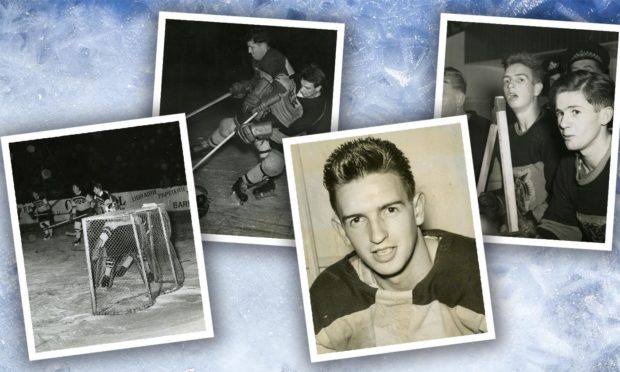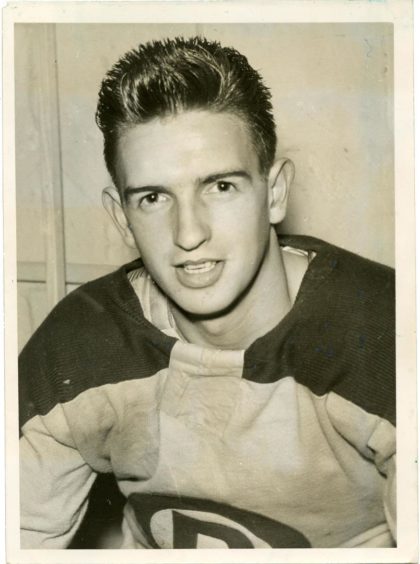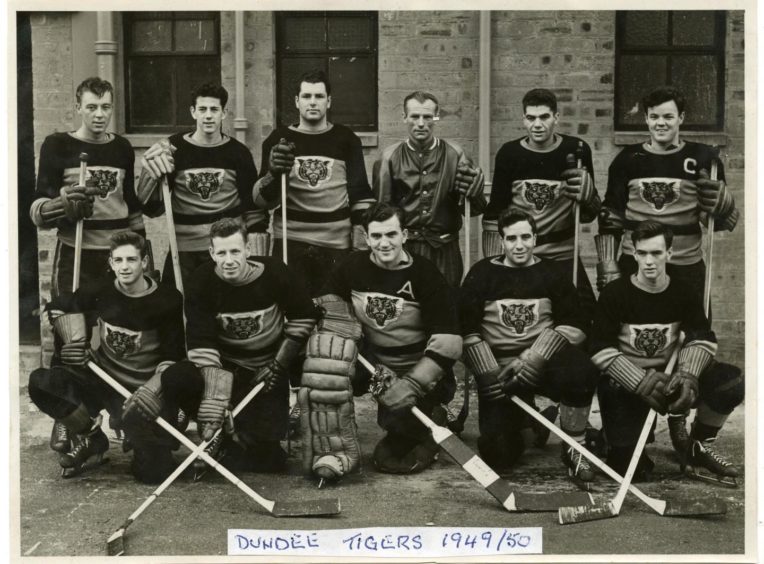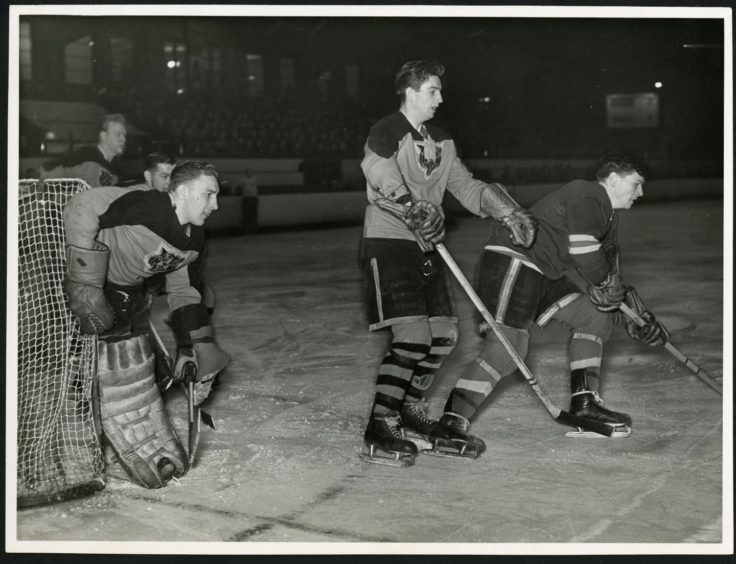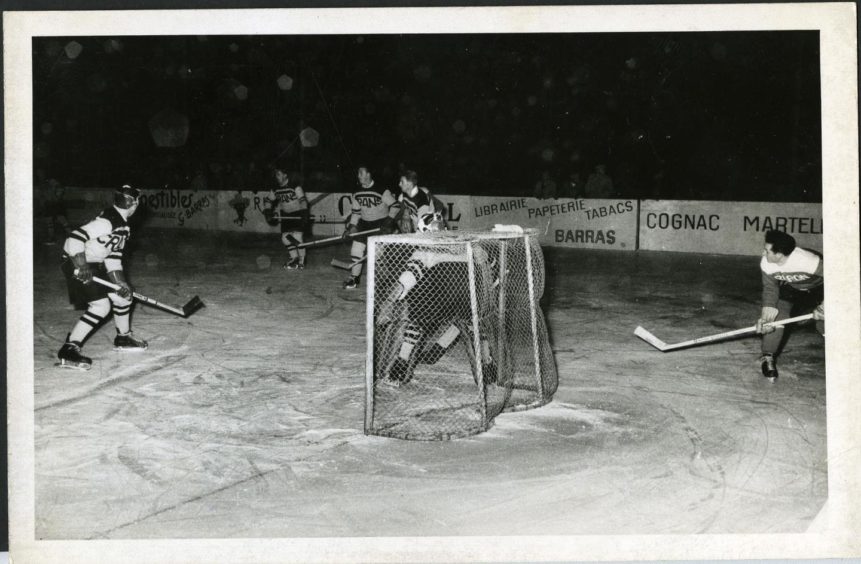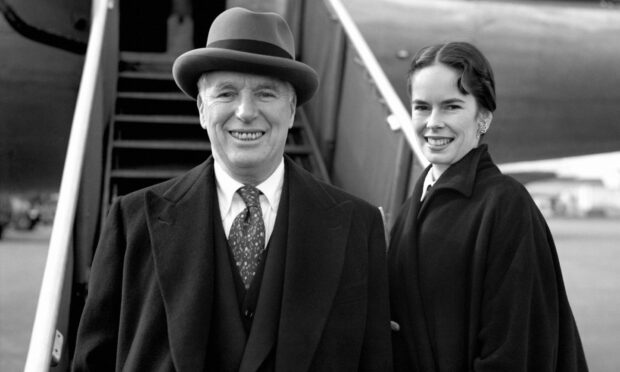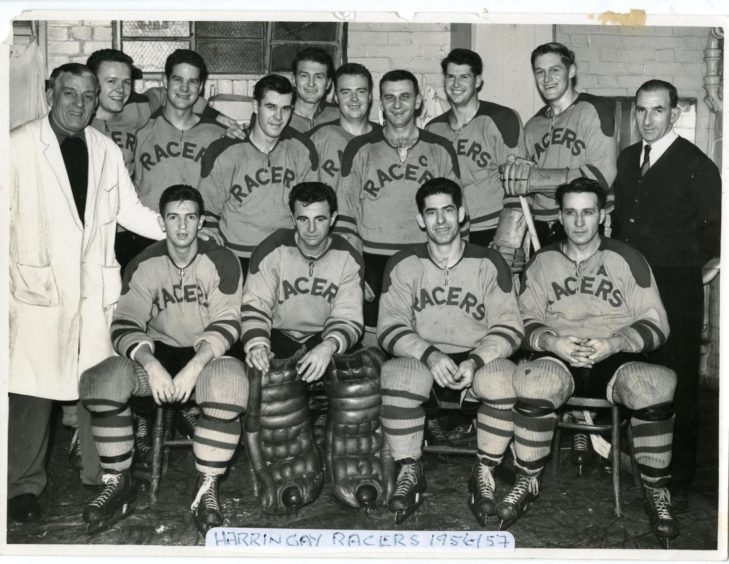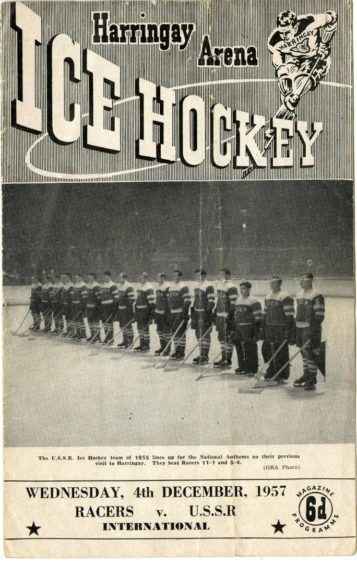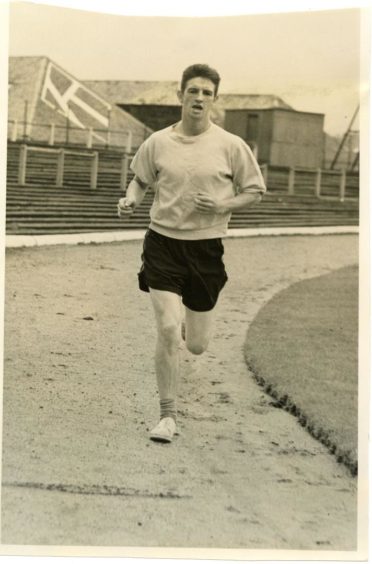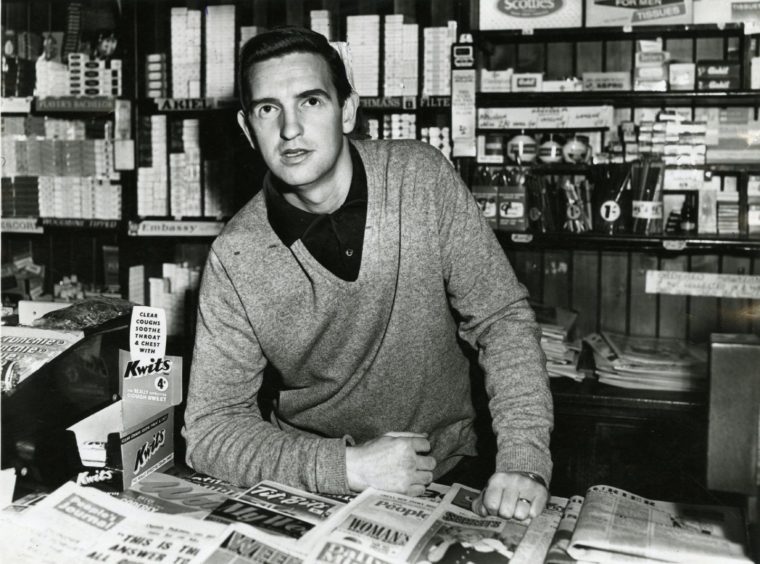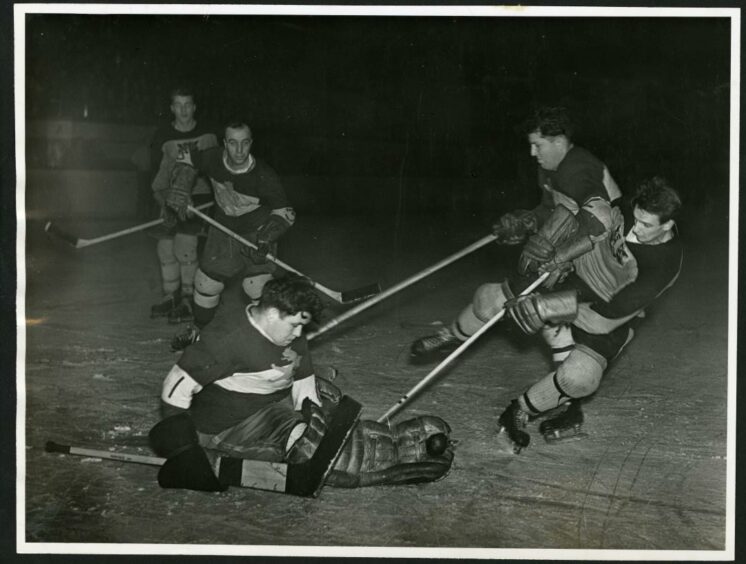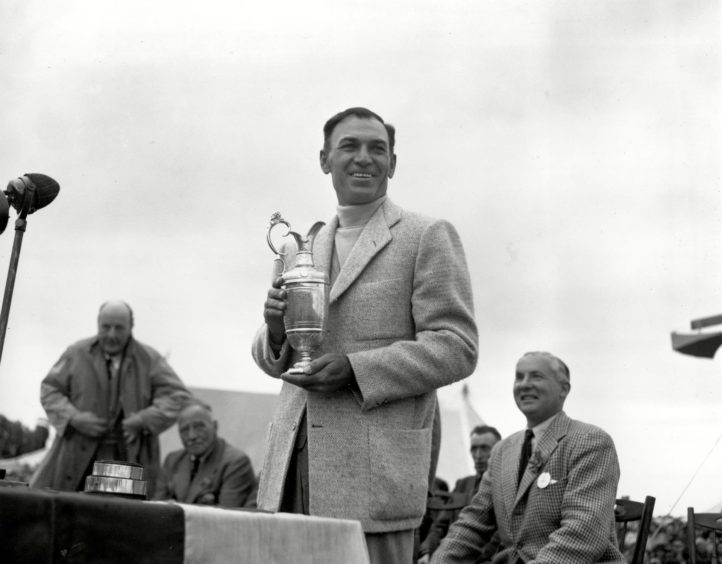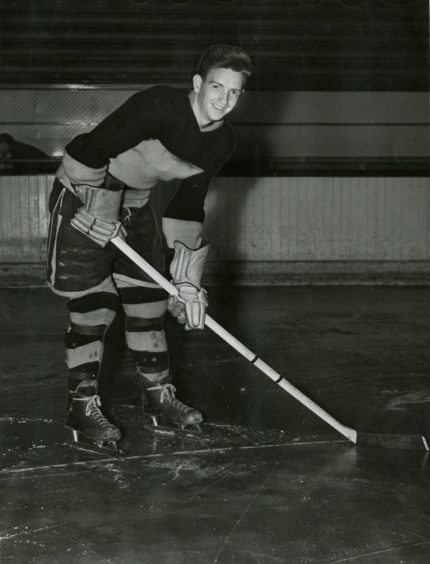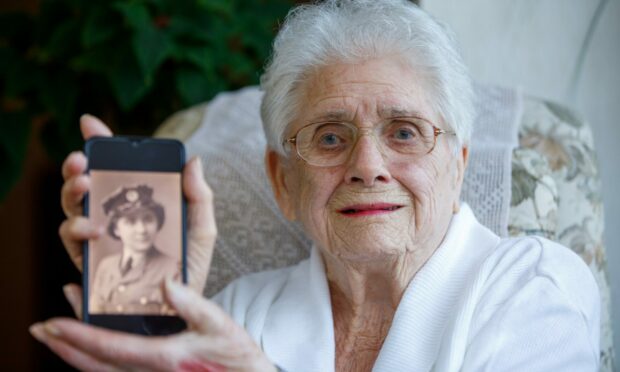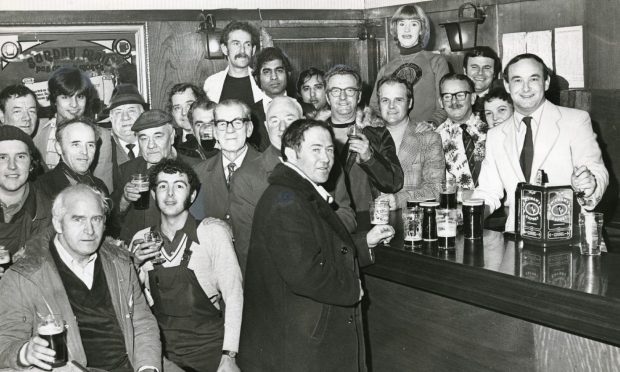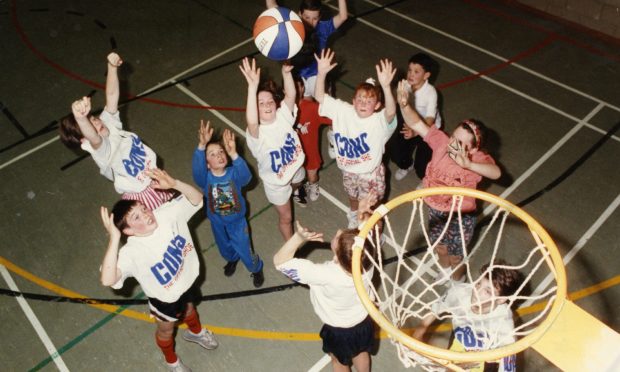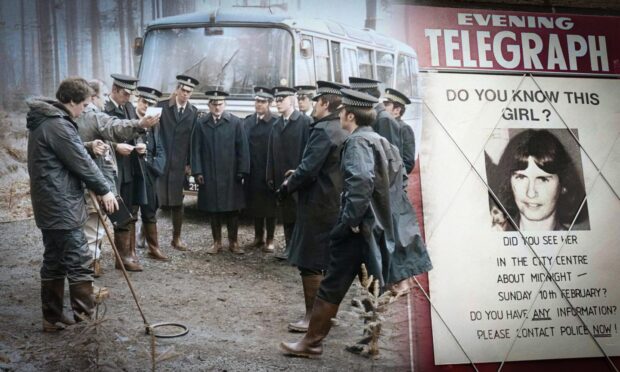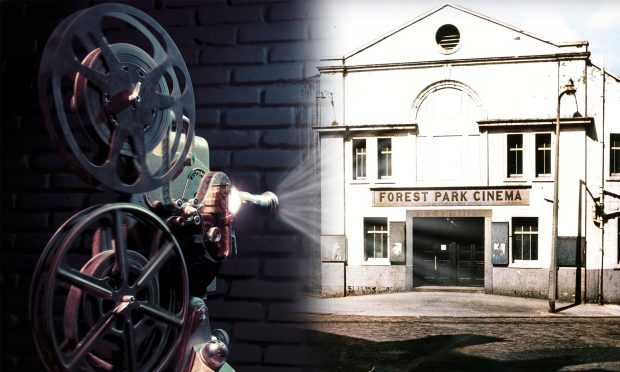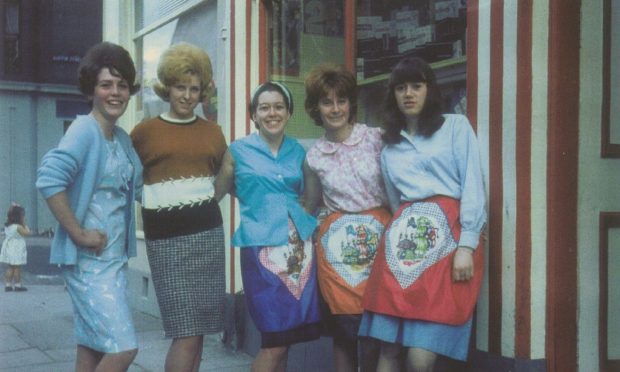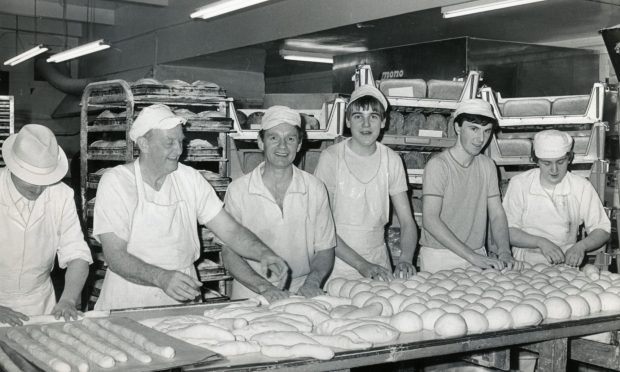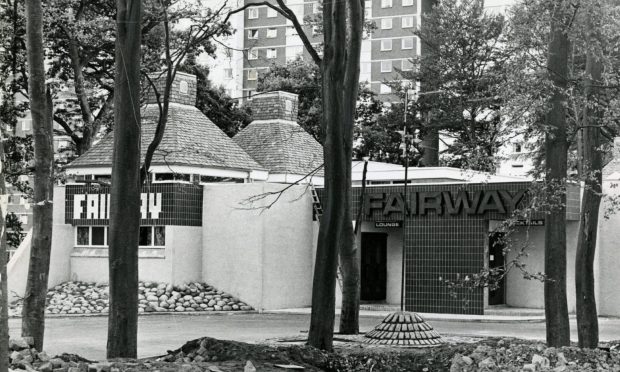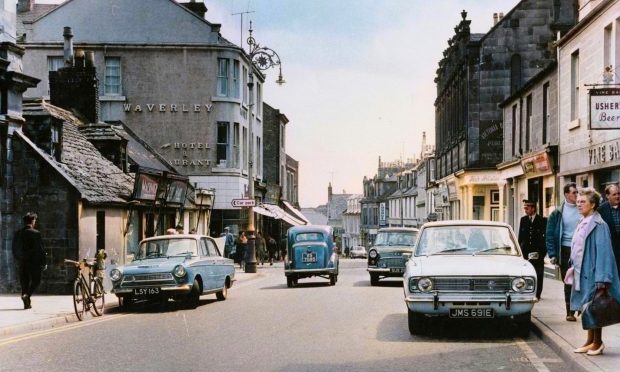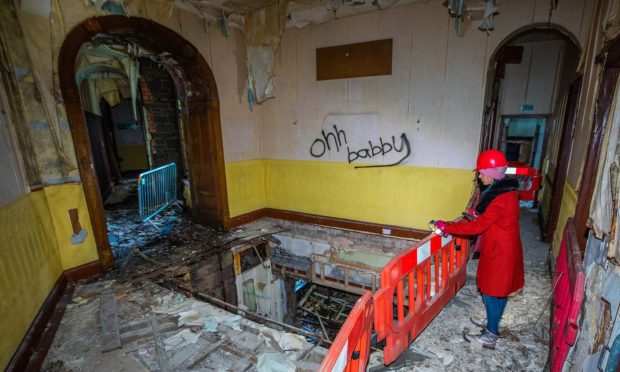Silent movie star Charlie Chaplin knew Dundee ice hockey hero Marshall Key was box office when he asked him to teach his son to skate.
Marshall’s own compelling life story featured enough twisting yarns and high-octane drama to be worthy of its own Tinseltown script.
The Hall of Famer made his senior debut for Dundee Tigers in 1948 before he finally retired from the sport in 1971.
Born in Dundee on June 18 1932, Marshall was brought up just 600 yards from the city’s old Kingsway rink and was educated at Morgan Academy.
With an elder sister who was to become a professional figure skater, the 13-year-old Marshall learned to skate at the rink when accompanying his sister and mother to the public skating.
Marshall’s first taste of hockey came during the wartime games when Scottish Selects played Canadian Army teams at the Kingsway.
They needed someone to work the scoreboard and he landed the job.
One Saturday morning he was skating on the ice with his friend Stan Paterson when Dundee Tigers Canadian coach George McNeil invited them to attend a hockey practice.
It was at that practice session that he first met Alex ‘Red’ Forbes, a former Tigers player who later gave up ice hockey in favour of football and played for Arsenal and Scotland.
Red really taught him to skate, which was towards the end of 1945.
Big league hockey started up again the first year after the Second World War and the Tigers brought over the first of the great Canadian players.
There were men like Gus Gustavsen, Bobby Burns and Jim Yeaman.
Marshall’s hero was Farrell Gallagher and ice hockey suddenly took on a new meaning.
At every opportunity Marshall watched him play, noting his style and trying hard to copy him.
Marshall progressed from the Tiger Cubs to the junior Rockets in 1947.
He made his debut for the senior Dundee Tigers at 16, during the 1948-49 season, when Canadian coach Laurie Marchant gave him a brief introduction to professional hockey.
The following season another Canadian coach, Walt Macdonald, recognised Marshall’s abilities and utilised him as a centreman on the second line on a regular basis, and he was to remain a mainstay of the Dundee offence until pro hockey at the Kingsway folded in 1955.
Friends with Charlie Chaplin
He had first been capped for Scotland back in 1950, scoring a goal and three assists in a 12-1 rout of England at Falkirk.
In 1951 he was selected for the GB team that took part in the Paris World Championships, but was doing national service at RAF Leuchars and his commanding officer refused to give him leave to play.
In 1953 the directors at Dundee would not release him to travel to Switzerland with GB, as they didn’t want him missing vital club games at a crucial stage in the season.
Between 1954 and 1960 the British Ice Hockey Association didn’t enter a team in world tournaments; this was during the peak years of Marshall’s career.
After a season playing with Perth Panthers in the Scottish Amateur League in 1955-56, Marshall spent the following winter as player-coach with Swiss outfit Crans-sur-Sierre.
Charlie Chaplin and his wife, Oona, had a villa near Crans and while he was there Charlie asked Marshall if he would give skating lessons to his son, Michael.
“I agreed but the lessons were not successful,” said Marshall.
“Michael was bored and wasn’t very interested.
“How anyone could be bored in a place like Crans was beyond me, but he was.
“In the end, we packed up the lessons, but Charlie and his wife both thanked me for trying.
“Years later, when I was playing for an Edinburgh team, we were in Geneva to play an exhibition match at the opening of a new rink.
“On the plane back to London were Charlie and his wife.
“They were popping over to see a show – the way Dundee folk go to Edinburgh or Glasgow.
“Hardly anyone recognised the small, grey-haired man as the little tramp of the silent screen who had made millions laugh so many years before.
“‘That’s Charlie Chaplin’, I told my mates, and they all turned to stare at him.
“He remembered me as his son’s unsuccessful skating teacher and we talked for a while on the flight over.”
Iron Curtain lockdown
He combined the Swiss season with 51 games for Harringay Racers in the British League.
Marshall centred the Racers’ first line over two seasons alongside Canadian player-coach Bill Glennie and French-Canadian Ray Maisoneuve.
In 1957-58 Marshall was top scorer for the Racers, with 33 goals and 53 assists from 56 games, and finished above the likes of Strongman and Anning in the national scoring.
He took part in a six-week tour of Russia, Czechoslovakia and Scandinavia and flew from London to Prague and went to Brno, Kolin, Ostrava and Bratislava, playing before vast crowds.
They were due to fly from Prague to Moscow on Christmas Eve 1957 for the next leg of the tour but Moscow was fog-bound and all flights were cancelled.
Although Czechoslovakia was a Communist country, the people still celebrated Christmas in their own way.
That meant everything closed including their hotel and the team thought they would be left in the street as all the staff went home.
But the hotel manager agreed to lock them in and left them a great cold meal and a case of beer to celebrate.
He returned the following morning to let them out and they flew to Moscow.
They stayed in the Intercontinental Hotel in Red Square and between games they were taken to see the Bolshoi Ballet, the Moscow State Circus and a visit to the tombs of Lenin and Stalin.
The team played their first match in the 80,000 capacity Lenin Stadium where a rink was frozen over the football pitch using a special machine.
He also scored the winning goal for Racers in the Ahearne Cup Final in front of 14,000 fans in Stockholm that season.
Marshall once broke his nose in a game for the Racers, which left it sitting around the middle of his left cheek.
Trainer Harry Aldridge took one look at the injury at half-time and used a spoon to manipulate it back into place!
Red Forbes used to attend Racers’ training sessions during his time with Arsenal and begged Marshall to get his coach to allow him to take part, having been a decent player while in Dundee.
Marshall said: “Eventually we succeeded – and he got clipped for four stitches above the eye.
“He swore us to secrecy, sure that Arsenal would come down on him like a ton of bricks.
“A few days later I met him, still with stitches, and asked him how he made out.
“He said he told his landlady had left one of the kitchen cabinet doors open and he had walked into it, which seemed to work.
“Incidentally, Red asked me how much I earned in Harringay and I told him £25 per week. He was horrified, telling me that as a member of a First Division English league and FA Cup-winning club and a Scottish internationalist, the highest weekly wage he made was £15.”
Harringay Arena closed in the summer of 1958 and Marshall returned to Scotland and a berth on the newly-formed Edinburgh Royals.
Although Marshall finished fourth in the overall Autumn Cup scoring (20 goals and 31 assists from 25 games), the Murrayfield management pulled the plug on the Royals before the league started.
Newly married to Doreen, Marshall was asked to join Nottingham Panthers, but was reluctant to move again, instead taking up an offer from Paisley Pirates manager Bill Creasey.
Marshall played the last two seasons of the British League with the Pirates.
In total, he played in 506 pro games for Dundee Tigers, Harringay Racers, Edinburgh Royals and Paisley Pirates in the Canadian-dominated seasons from 1948-1960.
He scored 217 goals, 332 assists, for 549 points, being assessed 167 minutes in penalties.
Having worked in the newspaper circulation business with the Daily Mail on leaving school, he had been in full-time hockey since completing two years of National Service in the RAF in 1952.
Marshall then took over the running of his father’s newsagent shop in North Lindsay Street, expanding the business to incorporate a snack bar and public house, the well-known Keyhole.
He continued to play in the post-1960 amateur set up in British hockey, helping the Murrayfield Royals to the British Championship in 1960-61 who were coached by Johnny Carlyle.
Struggle with injuries
With the British returning to the fold in 1961 he was an automatic choice for the GB team that was to win a silver medal at Pool B that year in Geneva.
However, a serious back injury in a match against Brighton five weeks before the tournament in January 1961 forced him to withdraw.
The injury put Marshall out of hockey for two years following spinal fusion surgery and saw him miss the Pool A tournament in the USA in 1962 and Pool B in Sweden in 1963.
He returned to the ice during 1963-64, helping Perth Black Hawks in six games before retiring after a season back at Murrayfield in 1964-65 when he scored 22 goals and 18 assists from 16 games.
At the age of 32 he represented Great Britain at the Pool B World Championships in Finland, netting two goals and adding four assists in six games.
He was captain of the GB team at the tournament, retiring a few months later.
He returned to the sport in 1969, at the age of 37, when he was asked to coach and play for the reformed Dundee Rockets.
He formed a kids’ school at Dundee and among the players he brought through were Jimmy Pennycook, Mike Ward and Charlie Kinmond.
He finally retired for good in 1971 and concentrated on his love of golf, which began in 1953 after he watched American Ben Hogan win The Open at Carnoustie.
In 1991 Marshall met his golfing idol at the end of a five-week trip to America with his wife where he was visiting old friends Ron and Jane Roberts.
Ron, a lawyer in Dallas, took Marshall to Hogan’s Shady Oaks course at Fort Worth and managed to set up a meeting between Marshall and Hogan.
They spoke about his win at Carnoustie in 1953 and Marshall asked him to sign a photo of Hogan striding across the Carnoustie Links with a young Marshall behind him in the gallery.
“I’d carried that photo around for almost 38 years,” he said.
“It seemed fitting, in a way, that after all that time, it was finally finished off with Ben’s signature in the bottom corner.”
Back on the ice again
Marshall put his skates on again when he performed the opening ceremony at the new Dundee Ice Arena in 2000.
One of the function suites in the arena is named in his honour.
He lived in semi-retirement in Invergowrie with Doreen where he was a one-time mine host of the Invergowrie Inn before it was run by his son, Gary.
The couple also had a daughter, Susan, and Marshall was a proud grandfather to Rachel.
He was inducted to the British Ice Hockey Hall of Fame in 2007.
He died in 2016, at the age of 83, but his legacy lives on to this day.
